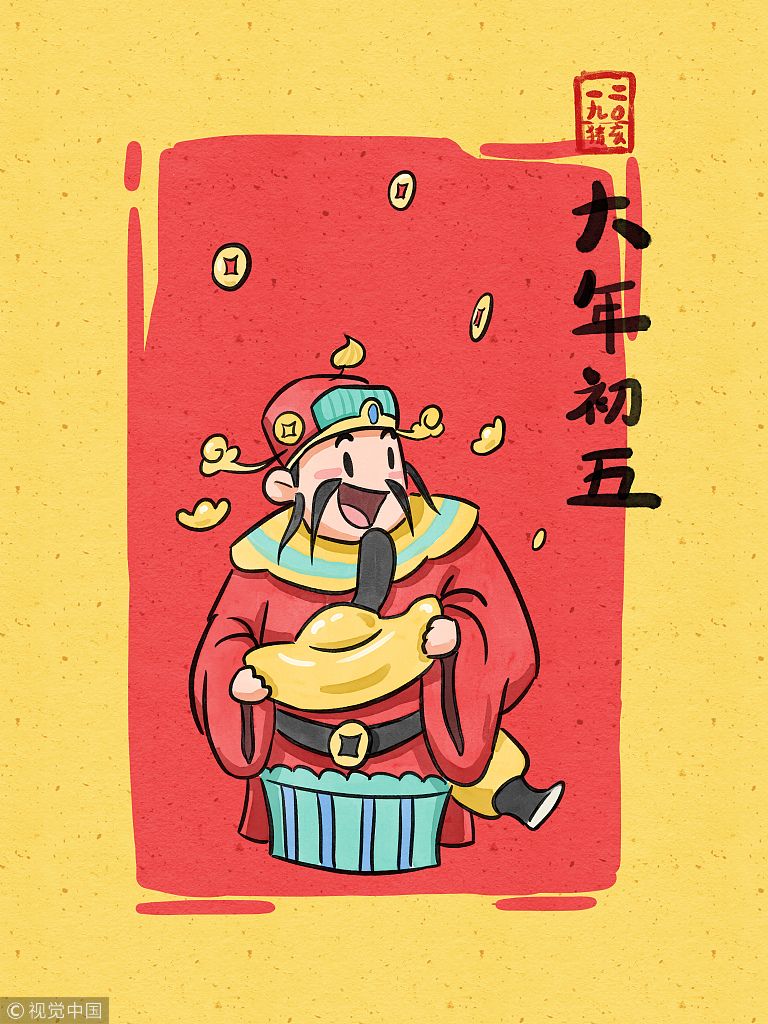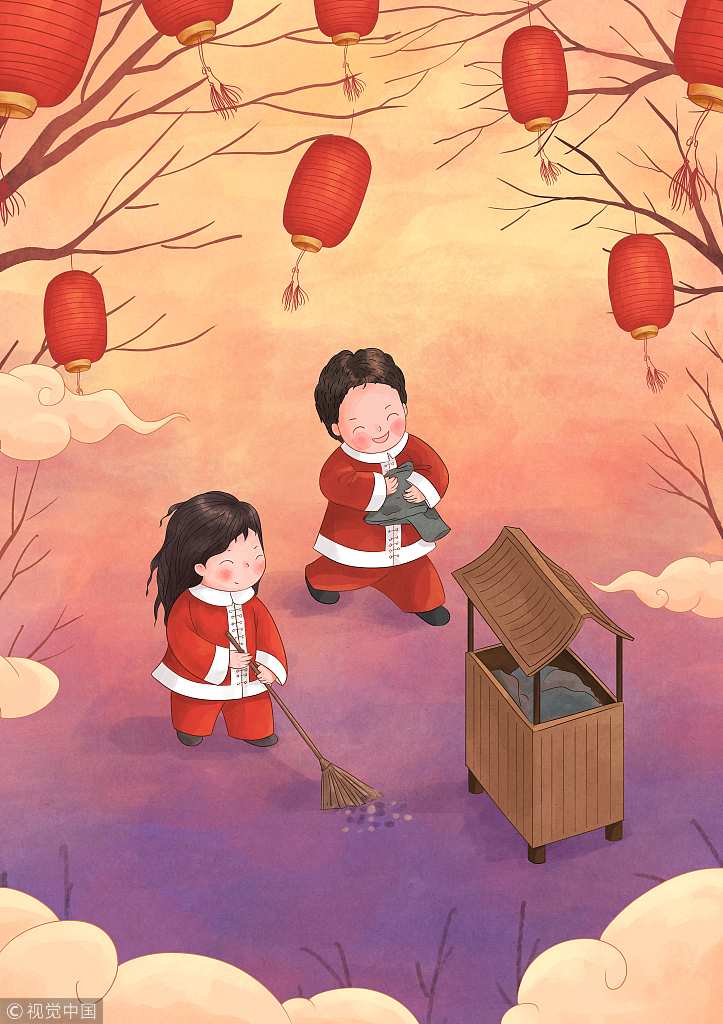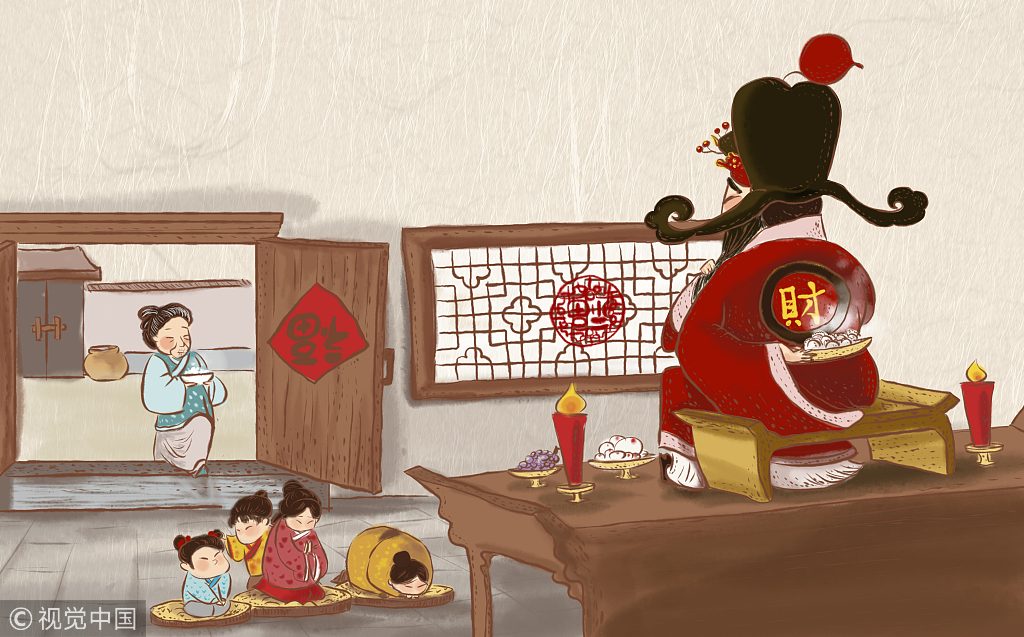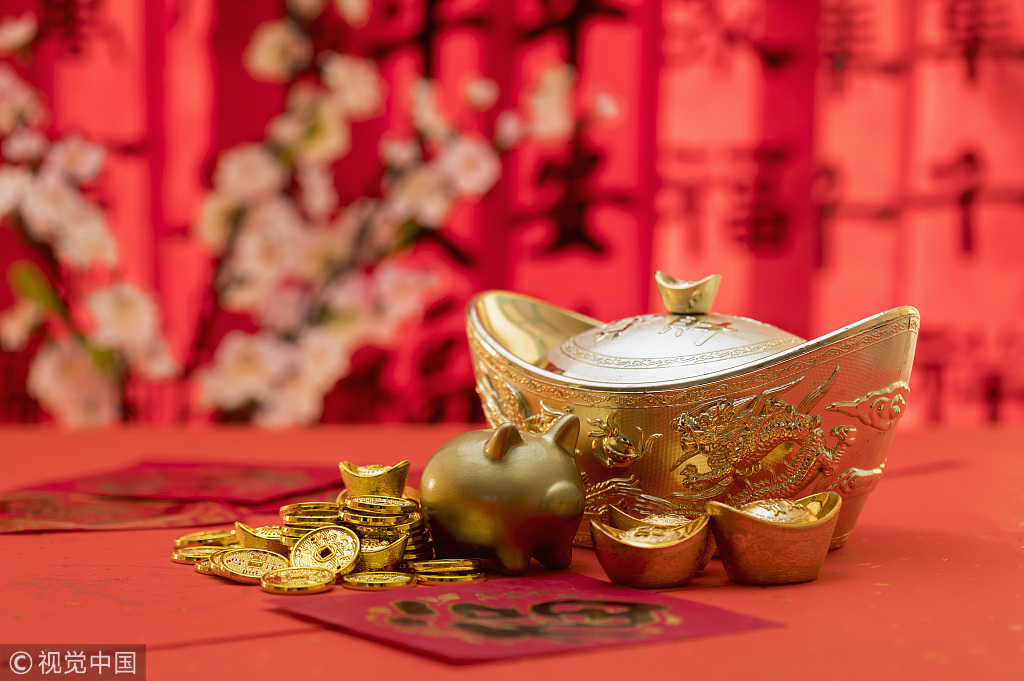
Culture China
15:29, 09-Feb-2019
Po Wu: Everything about Spring Festival's most auspicious day
Updated
16:22, 09-Feb-2019
By Hong Yaobin

As grand revelries of the Spring Festival continue to immerse every corner of China, long strings of firecrackers have been set off once again to mark the auspicious occasion of "Po Wu".
Po Wu is celebrated on the fifth day of the first month of the Chinese New Year. This year the day falls on February 9.
"Po" literally means "to break" and as the name suggests, this day stresses on making breakthroughs.
In Chinese, the pronunciation of "Po Wu" also means "self-breakthrough".

According to the Chinese folklore, the fifth day of the Chinese New Year is the birthday of the God of Wealth. /VCG Photo
According to the Chinese folklore, the fifth day of the Chinese New Year is the birthday of the God of Wealth. /VCG Photo
Traditionally many taboos are associated with the Chinese New Year festivities. Chinese people believe that, as the Spring Festival is the start of a new year, what you do then will affect your luck in the year.
For instance, the act of sweeping is associated with sweeping the wealth away. Taking out garbage symbolizes dumping out the good fortune from the house.
After Po Wu, all these restrictions are lifted, which also means the end of the holiday season and getting back to work.
On the fifth day, people are allowed to sweep the floor and throw out the garbage to ward off evil spirits and bad luck.
Click to learn more: Taboos of Spring Festival: 'Must-not-dos' as the Lunar New Year begins
Happy Birthday God of Wealth!

On the fifth day of the Chinese New Year, people sweep the floor and throw out the garbage to ward off evil spirits and bad luck. /VCG Photo
On the fifth day of the Chinese New Year, people sweep the floor and throw out the garbage to ward off evil spirits and bad luck. /VCG Photo
According to the Chinese folklore, the fifth day of the Chinese New Year is the birthday of the God of Wealth or "Caishen" in Chinese. Hence, this day is also called the "Day of Caishen".
On this day, people get up early to clean their house and open all doors and windows to welcome the God of Wealth in the belief that he would bring more good luck and fortune in the year.
Traditionally, the celebrations begin from the night before amidst the sounds of drums and gongs.

Fruits and cakes are offered to the God of Wealth on the fifth day of the Chinese New Year. /VCG Photo
Fruits and cakes are offered to the God of Wealth on the fifth day of the Chinese New Year. /VCG Photo
At midnight, a sacrifice ceremony is held to offer fruits and cakes to the God of Wealth and incense candles are lit before the god's idol.
People also burst firecrackers to welcome the god to the ceremony. In addition, doors and windows are adorned with traditional paintings as a formal invitation to the god.
Eating jiaozi for a prosperous New Year

Feasting on jiaozi or dumplings is a traditional custom on the day of Po Wu. /VCG Photo
Feasting on jiaozi or dumplings is a traditional custom on the day of Po Wu. /VCG Photo
Most of the traditions and customs carried out on the day of Po Wu are associated with creating wealth and living a better life.
Feasting on jiaozi or dumplings is the most delicious custom of the day, especially for the people in China's northern areas.
Jiaozi is a symbol of prosperity as it is shaped like "yuan bao," gold and silver ingots that were used in place of currency notes in ancient China.
Making and eating jiaozi at home symbolizes creating wealth and improving living standards.

Gold ingots are called "yuan bao" in Chinese. /VCG Photo
Gold ingots are called "yuan bao" in Chinese. /VCG Photo
Some people fill the dumplings with dates to wish for more sweetness and good luck in the future.
In many parts of southern China, Po Wu is also called "market-opening day" as many companies and stores reopen on the fifth day of the Lunar New Year.
Merchants regard this day as an auspicious time to start a new business with the blessings of the God of Wealth. Commercial activities that begin on Po Wu are believed to enjoy a booming year.
(Cover image by Yin Yating; Copy edited by Khushboo Razdan)

SITEMAP
Copyright © 2018 CGTN. Beijing ICP prepared NO.16065310-3
Copyright © 2018 CGTN. Beijing ICP prepared NO.16065310-3